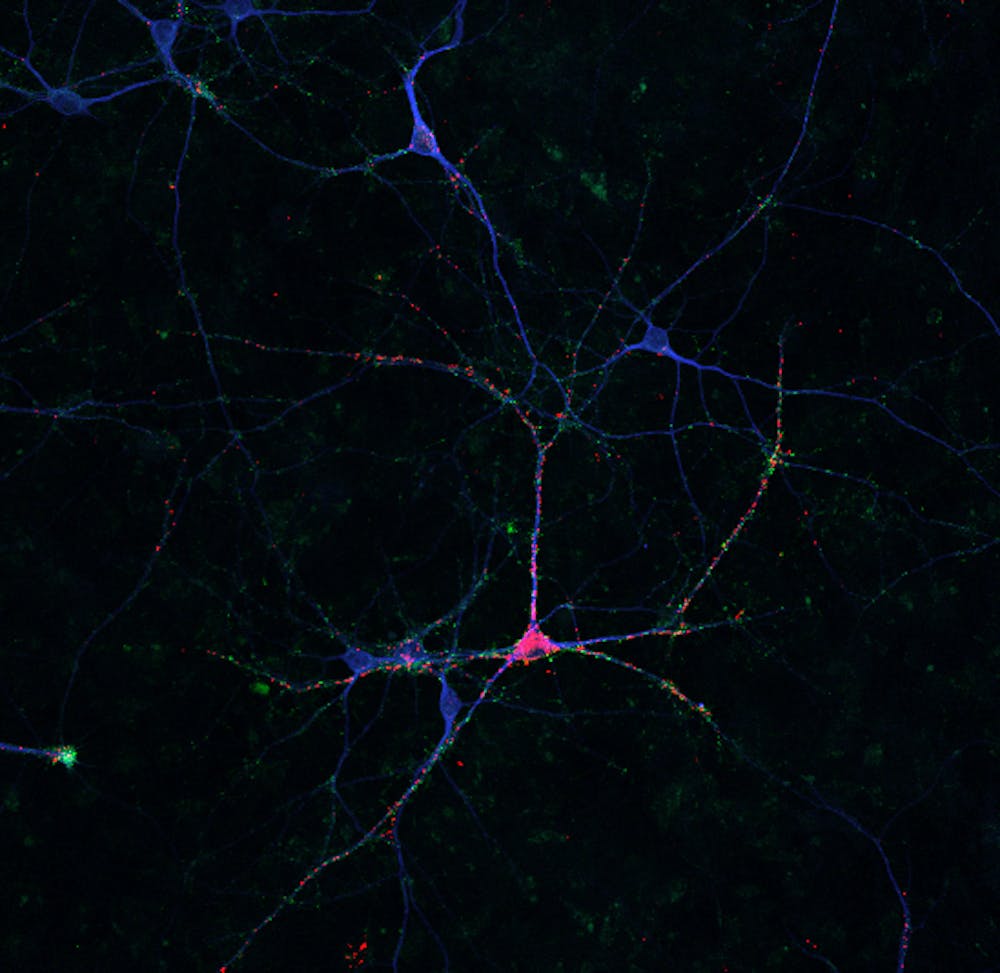CMU research could lead to new antidepressant treatment

This image highlights the postsynaptic excitatory and inhibitory receptors on neurons during a drug test using hydroxy-norketamine. It won the image competition at the fall semester Biology Undergraduate Research Symposium. (Courtesy of Jazmin Wright-Zornes)
Major depressive disorder (MDD) affects 17 percent of Earth's population today, but a team of Central Michigan University researchers may be approaching a new kind of treatment.
MDD is most commonly treated with medication and psychological counseling. However, for many who take medication, relief only comes months after they begin taking their prescriptions, and the majority of patients never achieve remission from their mental illness.
Ketamine has been studied as a potentially effective antidepressant in the past because of its long-lasting antidepressant symptoms. However, Ketamine also has addictive qualities and dissociative side effects which could hinder its usage as a prescribable medication.
With a team led by CMU associate biology professor Dr. Shasta Sabo, senior Jazmin Wright-Zornes has been studying a hypothesis that has been previously proposed to find a new solution.
Her new hypothesis suggests that a variant of Ketamine, the metabolite hydroxy-norketamine (HNK), will produce the same long-term antidepressant effects without the dissociative affect and addictive quality.
Wright-Zornes conducted her study by treating neurons with varying concentrations of HNK to see if their dendritic spine development increased, since an increase in these spines has been associated with antidepressant effects. If so, HNK could be a potential antidepressant treatment.
Sabo and her team had previously found that Ketamine hindered synapse development, which was contrary to popular belief. With this in mind, Sabo decided to research if Ketamine’s metabolite, HNK, would increase dendritic spine development, leading to the antidepressant effects.
“We observed with the naked eye that the neurons treated with the higher concentrations of HNK seem to have more developed spines,” Wright-Zornes wrote in her report. However, more testing is required to draw a sturdy conclusion.
Wright-Zornes is still working to correctly analyze the quantity of the spines on neurons treated with HNK. Under a confocal microscope, the neurons were simply not bright enough to accurately observe and draw any solid conclusions.
Wright-Zornes is planning on continuing the study with a different DNA fill to help define the dendritic spines more clearly to finally draw a conclusion on the effects HNK has on neuron development.
“With this novel information, researchers will hopefully be able to begin the development of HNK as a rapid antidepressant medications that does not exhibit the negative side effects of Ketamine to help millions of people suffering from MDD around the world,” Wright-Zornes said.






